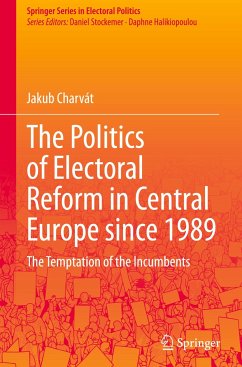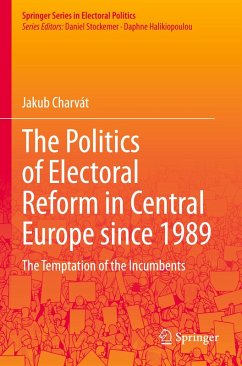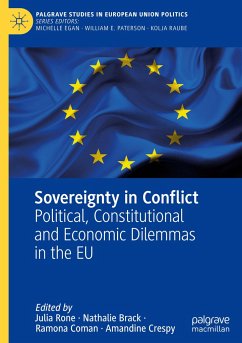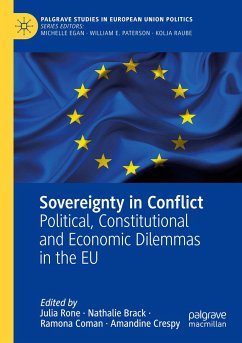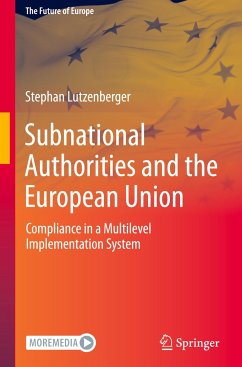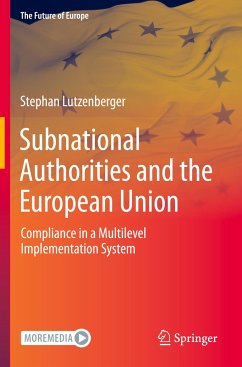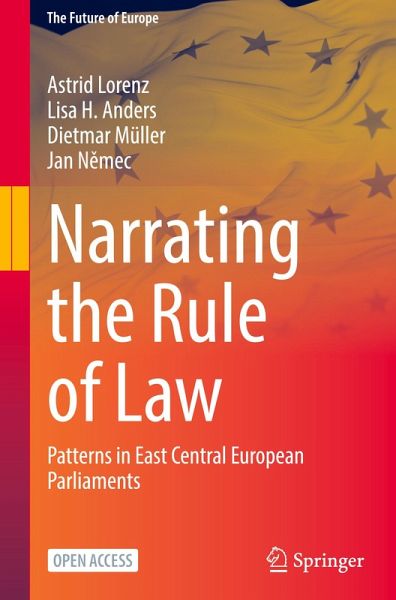
Narrating the Rule of Law
Patterns in East Central European Parliaments
Versandkostenfrei!
Versandfertig in 6-10 Tagen
38,99 €
inkl. MwSt.

PAYBACK Punkte
19 °P sammeln!
This open access book deals with the backsliding of the rule of law in Poland and Hungary as one of the main problems of the EU. What began as a national phenomenon has become a general threat for the EU because the respect for the rule of law is a prerequisite for all other values of the EU enshrined in Article 2 of the Treaty on European Union. Media coverage and scholarly publications on these developments mainly focus on backsliding governments and judicial decisions concerning the issue. This book aims to inform the debate by adding another perspective and providing a broader view. Drawin...
This open access book deals with the backsliding of the rule of law in Poland and Hungary as one of the main problems of the EU. What began as a national phenomenon has become a general threat for the EU because the respect for the rule of law is a prerequisite for all other values of the EU enshrined in Article 2 of the Treaty on European Union. Media coverage and scholarly publications on these developments mainly focus on backsliding governments and judicial decisions concerning the issue. This book aims to inform the debate by adding another perspective and providing a broader view. Drawing on a comprehensive collection of parliamentary debates, we explore how MPs in Poland, Hungary, but also the Czech Republic, Slovakia and Romania referred to the rule of law from 1990 to 2021 and how their narratives differed across parties, countries and time.






